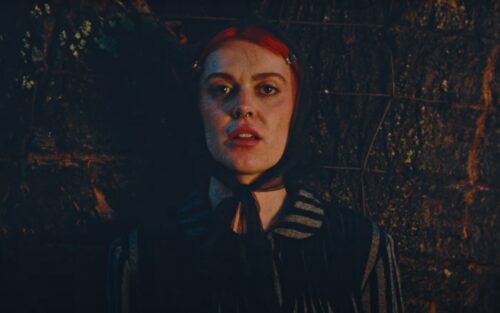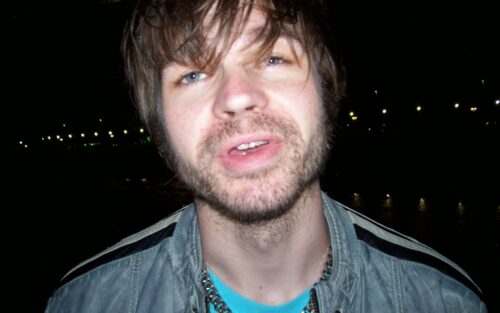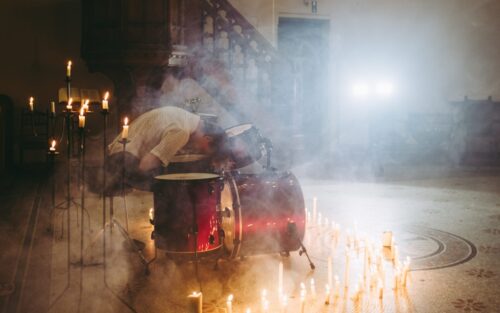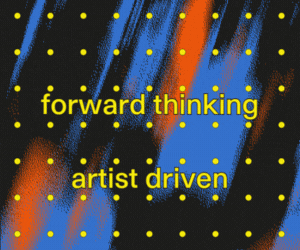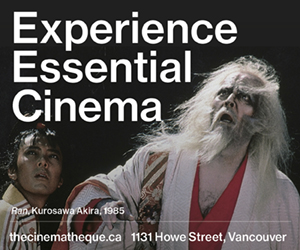Rachella Wred’s Geography of Healing
The indie-folk songwriter turns her travels and turmoil into a debut rich with place and emotion.
By Ben Boddez
- Published on
While countless singers have expressed how therapeutic music can be after a tough split, Wred truly makes you experience it right alongside her – in fact, the song the lyric hails from, “November,” was written spontaneously and nervously to keep busy, since Wred’s phone had been thrown to the other side of the room after reaching back out to her ex-partner and awaiting the text reply.
Of course, many of us have been there. We’re well aware of that specific feeling of a stomach tied in too many knots to unravel, and it’s that kind of raw immediacy and intimacy that allows Wred’s lyrics to cut deep. Her backdrop of lived-in acoustic folk is ideal for telling these stories, and getting it all out in the open has helped her move forward as both a person and a musician.
“I’m super grateful for that whole breakup. I wrote [lead single] ‘Bend and Break’ and then I didn’t write anything for a year, because I was just processing it,” she says. “Being single has allowed me to really take charge of what I’m doing and focus so much on creativity. I feel like I’ve learned so much about myself, even just going and traveling around. I was also with a musical partner, so I think stepping away from that allowed me to come into my own, trust myself, and figure out who I was musically, which also translated to who I was personally as well.”
Wred’s come a long way from her “Bend and Break” music video, a devastating breakup tune which finds her sitting on the ground looking as despondent as possible outside of a variety of run-down and dilapidated locations. It looks like an abandoned ghost town – a movie theatre, a laundromat, a barn with a cartoon mural – but actually, the shots come from Wred’s recent trips to both Alaska and Saskatchewan.


“The Americana small town vibe is what I feel like I was really drawn to last summer,” she says. Wred mentioned enjoying her newfound freedom to travel around earlier, and a lot of what she saw found its way into her music as well. Wred even got inspired enough by the locations she found herself in while writing that she placed some field recordings on the album as accompaniment, and used a favourite shot from her travels as album artwork.
“I think that the nature element tied into some of the word painting in the lyrics, and some of the metaphors that I was using. Yeah, it’s interesting, traveling and absorbing,” she continues. “The album art image is from the road between Whitehorse and Haynes, Alaska. It’s just this beautiful mountain range. Since it’s so far north, the sun isn’t really setting till super late, so it was this beautiful sunset at 11 p.m. and I was there with one of my best friends and photographer.”
Location-based songwriting also makes its way onto the project in another form: Wred has described it as a “combination of the Montreal bustle and the pull of the Pacific.” Originally from the West Coast and having relocated to Montreal at age 18, Wred also made sure to include visits to see her family in her travel plans while formulating Leave The Light On. On these tracks, the field recordings include creaking floorboards and even rain sounds pulled from childhood home videos, as she lyrically contemplates where home truly is for her.
“I wrote this album at a time where I’d just come to the city and was processing this new place, and then also feeling the pull of going back home – going back and seeing how things are changing, and my parents getting older,” she says, naming closing track “Sooke,” where she tackles this idea most directly, as her favourite on the album. “I was surrounded by nature, I was staying at a place with my family on the water, so I wrote it while looking out at the sailboats. It was so beautiful. I listen to that song, and I’m taken back to how I was feeling.”

“Sooke” was actually the first song that Wred wrote while attending a workshop with School of Song featuring Adrianne Lenker, where the Big Thief frontwoman (and personal hero for Wred) gave out tips to aspiring songwriters. Another less contemporary folk icon, however, actually inspired Wred’s more synth-heavy and pop-oriented “Six Months in the City”: Tom Waits, and his track “Day After Tomorrow.” In the song, Wred fights through an initial hatred of her new home to eventually come to appreciate her surroundings.
“I was working at a restaurant, playing open mics; just so busy, so burnt out. I’d been [in Montreal] for a year and a half, and so it sort of lost a bit of its charm, and it just kind of felt like drudgery,” she says. “There’s a lyric in the Tom Waits song, ‘Shoveling snow and raking leaves and my plane will touch down on the day after tomorrow,’ Those little three lines kind of inspired all of ‘Six Months in the City,’ thinking about all the different people that I’ve met, different personalities that I collected working at my job, and the exhaustion of doing full time service and then playing bar shows at night.”
The more upbeat track stands out on the project – something that Wred says she’s proud of for getting out of her comfort zone – but one other genre diversion that creeps into her folk backdrops even more are some slide guitars and other country elements. When asked why she thinks her combination of sounds has had so much cultural capital as of late, she once again touched on authenticity.
“I feel like people are really coming to value storytelling again. Maybe it’s like a reaction to social media and everything moving so fast,” she says. “Folk music has a way of forcing you to sort of slow down and notice little moments. It feels like it’s of another time, and I feel like it captures some of the magic of the simplicity of everyday life so well.”
By Stephan Boissonneault
Nate Amos revisits a decade of stray ideas and turns them into his most compelling record yet.
By Khagan Aslanov
Mike Wallace’s electro-punk project premieres the hypnotic, percussion-driven video for "Certain Days."

